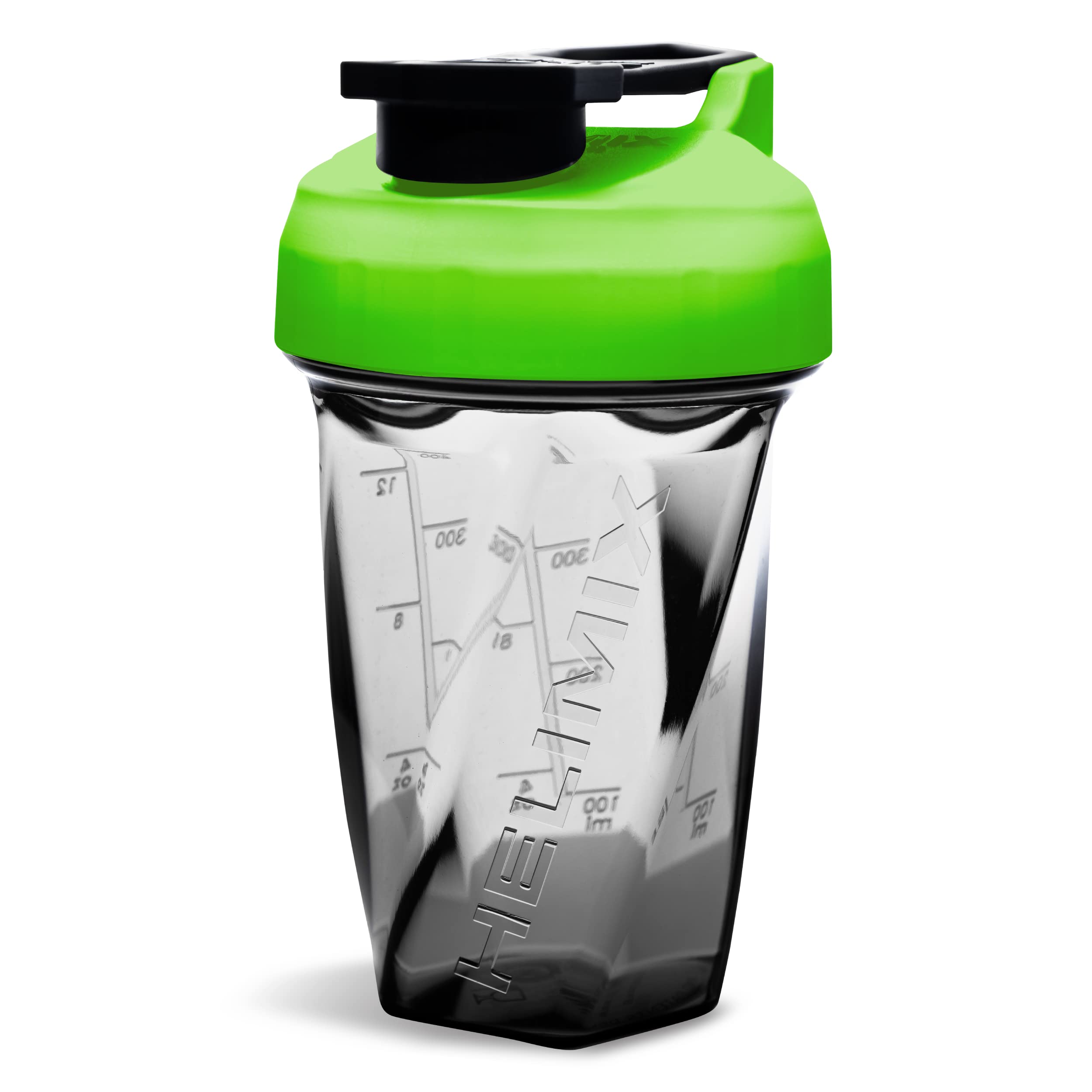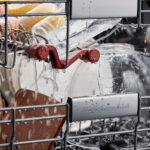Yes, many blenders are dishwasher safe. However, it is recommended to check the manufacturer’s instructions before putting it in the dishwasher.
When it comes to making delicious and nutritious smoothies, a blender is an indispensable kitchen tool. While preparing smoothies can be messy, cleaning up afterward can be even more of a hassle. Thankfully, many modern blenders are designed to be dishwasher-safe, thus making cleaning up a breeze.
However, it is always important to verify the manufacturer’s instructions before putting the blender in the dishwasher. Doing so will ensure that the blender lasts longer and remains in good shape for future use. With this in mind, let us explore the subject of whether blenders are dishwasher safe in more detail.

Credit: www.ebay.com
Understanding Blender Safety Basics
Blenders have been a popular kitchen appliance for years and are used to blend, mix, and puree ingredients. However, before using a blender, it is essential to understand the safety basics. Here are the key safety considerations:
Components Of A Blender
A typical blender consists of the following components:
- Base: It houses the motor and keeps the blender stable.
- Jar: It holds the ingredients that need to be blended. Jars are typically made of plastic or glass.
- Lid: It fits tightly over the jar to prevent spills while blending.
- Blades: They consist of sharp, spinning components that blend the ingredients.
Material Considerations
When it comes to using a blender, the material of the jar is vital. Most blender jars are either made of plastic or glass. Here are the key differences to keep in mind:
- Plastic jars are more durable and lightweight, making them easier to handle and store. However, plastic can become scratched over time, trapping food particles and bacteria, making it difficult to clean.
- Glass jars are heavier and more fragile, but they are easier to clean and do not scratch as easily as plastic jars.
Manufacturer’S Instructions
It is crucial to read the manufacturer’s instructions before using a blender. Here are some safety guidelines to keep in mind:
- Always ensure that the lid is securely in place before blending.
- Do not fill the jar beyond the maximum fill line.
- Do not use a blender for more than one minute at a time. Allow the motor to cool down for a few minutes before using it again.
- Do not use a blender to blend hot liquids, as they may cause the lid to pop off or the jar to shatter.
Blenders are safe appliances when used properly. By understanding the components of a blender, material considerations, and the manufacturer’s instructions, you can use a blender safely in your kitchen.
Dishwasher Safe Blenders
Defining A ‘Dishwasher Safe’ Blender
When it comes to kitchen appliances, ease of maintenance is just as crucial as functionality. This is especially true when it comes to blenders, as regular use tends to leave behind a lot of residue. So, the question arises: what does it mean when a blender is labeled ‘dishwasher safe’?
Here are some key points to consider:
- A dishwasher safe blender is one that can be safely cleaned in a dishwasher without damaging the appliance or rendering it unsafe to use.
- This label is typically found on blenders that are made with specific materials that can withstand high temperatures, strong detergents, and water pressure without sustaining damage.
- Keep in mind that just because a blender is dishwasher safe does not mean that it is the most optimal cleaning method or that hand washing is not an option – only that it is an available option.
Factors That Determine Blender Dishwasher Safety
A number of factors can potentially impact a blender’s dishwasher safety. Here are some key factors to consider:
- Material: Dishwasher safe blenders are typically made from materials like glass, stainless steel and some sturdy plastics. Blenders made from fragile materials like ceramic or thin plastic should not be washed in dishwashers.
- Manufacturer’s instructions: Always carefully read the manufacturer’s instructions to confirm if the blender is dishwasher safe or not. Some manufacturers recommend hand washing over dishwasher cleaning.
- Age: Older blenders may not be designed with dishwasher cleaning technology in mind. Hence, it is important to check whether your blender is dishwasher safe or not, especially if it was purchased before the rise of dishwasher compatible appliances.
Recommendations For Dishwasher Safe Blenders
If you are in the market for a new blender or want to know which dishwasher safe blender you should buy, here are some top recommendations:
- Vitamix 5200: This blender is dishwasher safe and can quickly blend any ingredient into a smooth, consistent mixture.
- Ninja professional blender: This blender has a powerful motor and is made of durable materials that can withstand repeated use as well as dishwasher cleaning.
- Hamilton beach power elite blender: This blender is dishwasher safe and features a removable blade and glass blending jar for easy cleaning.
When purchasing a blender for dishwasher use, ensure you read the manufacturer’s instructions carefully to fulfill the warranty and enjoy the appliance’s full benefits.
Blenders Unsafe For Dishwashers
Exploring Why Certain Blenders Aren’t Dishwasher Safe
Blenders are a kitchen staple for numerous households across the world. They are multi-functional, make cooking much easier and can help you create a variety of dishes. However, not all blenders are dishwasher safe, and it’s essential to know why.
Blenders that come with different parts such as blades, gaskets, and rubber seals are not safe for dishwashers. The heat and water pressure in a dishwasher may loosen the blades, ruining the rubber seals and gaskets, which are crucial for keeping the blender airtight.
Types Of Blenders That Cannot Be Washed In A Dishwasher
There are specific types of blenders that are unsuitable for dishwashers.
- High-end blenders: High-end blenders, which are expensive and come with various small parts, are not dishwasher safe.
- Personal blenders: Personal blenders, like nutribullet, are yet another type of blender that you should not put in the dishwasher, as their compact size and multiple detachable parts can get damaged.
- Immersion blenders: Immersion blenders have motorized blades that can become rusty and corroded when exposed to the corrosive dishwasher detergent. Thus, they shouldn’t be put in a dishwasher.
Common Mistakes That Lead To Blender Damage And Unsuitable For Dishwashers
When cleaning a blender, it’s vital to avoid common mistakes that can lead to damage and unsuitable for dishwashers.
- Leaving the blender for too long without cleaning it: Placing a blender that has food stuck onto it in the dishwasher can lead to the food drying up and sticking permanently onto the blender.
- Not cleaning the blender immediately after using it: Leaving a blender dirty after use can cause bacteria to grow, which could be harmful when you use the blender later.
- Not following the manufacturer’s instructions: Not following the manufacturer’s instructions can lead to you damaging a product that could have lasted for years.
- Not washing the blender before putting it in the dishwasher: Chunks of food can get stuck in the blender and will then become difficult to remove even in the dishwasher, leading to the blender becoming unsuitable for use.
In a nutshell, for a blender to last longer and remain safe for use, you must follow the manufacturer’s instructions and clean it correctly. Additionally, only the dishwasher-safe blenders should be put in the dishwasher.
Care And Maintenance Of Blenders
Blenders are an essential kitchen appliance for those who are health-conscious and enjoy whipping up smoothies, sauces, and soups in a jiffy. But do you know how to properly care for and maintain your blender to ensure that it lasts as long as possible?
In this post, we’ll delve into the proper techniques for cleaning your blender, steps for extending its life, and more. So let’s get started!
Proper Cleaning And Maintenance Techniques
Keeping your blender clean is crucial for its longevity. Here are some techniques for proper cleaning and maintenance:
- After each use, rinse the blender’s blade and container with warm water.
- For deeper cleaning, disassemble the blender and wash the parts separately with soap and warm water. Be careful not to immerse the base, cord, or plug in water.
- To remove tough stains, add some baking soda and water to the blender, and allow it to sit for about 15 minutes before washing.
- Never use abrasive materials, such as scouring pads or steel wool, to clean the blender container or blades. This can scratch the surface and cause damage.
- Always dry the parts completely before reassembling. Moisture can cause rusting and bacterial growth.
Steps To Follow For Prolonging Blender Life
Blenders can take a beating through frequent usage, and their many components can quickly wear out. Here are some steps you can follow to extend your blender’s life:
- Do not overload the blender with too much food at once. This can put a strain on the motor and reduce its lifespan.
- Do not blend hot liquids in a plastic container. Hot liquids can damage the plastic and cause it to melt.
- When using a blender, start with a low setting and gradually increase the speed, if needed. This helps reduce stress on the motor and prolong its life.
- Clean your blender regularly as described above.
- Store the blender in a dry, safe place.
By following these steps, you can prolong the life of your blender and enjoy its many benefits for years to come.
Remember, proper maintenance is key to ensuring that your blender lasts. Clean it regularly, avoid overloading, and store it properly. With proper care, your blender can provide you with delicious meals and drinks for years to come.
Frequently Asked Questions On Is A Blender Dishwasher Safe?
Can I Put My Blender In The Dishwasher?
Yes, most blenders are dishwasher safe, but be sure to check the manufacturer’s instructions first.
What Parts Of The Blender Can I Put In The Dishwasher?
Typically, blender jars, lids, and blades are dishwasher safe, but always check the manufacturer’s instructions.
Is It Better To Wash A Blender By Hand Or In The Dishwasher?
It depends on personal preference, but washing by hand may be gentler on the blender blades.
How Should I Clean My Blender If It’S Not Dishwasher Safe?
Fill the blender jar halfway with warm water and a drop of dish soap, then run the blender for a few seconds. Rinse thoroughly with water.
Conclusion
Blenders are a great addition to any kitchen, helping to make meals and drinks quickly and easily. However, with the convenience comes the question of whether or not the appliance is dishwasher safe. When choosing a blender, it’s important to consider the components and whether they can withstand high temperatures and water pressure in the dishwasher.
Most blender jars and lids are dishwasher safe, but the blades and motor base should be cleaned separately to avoid damage. Taking a few extra minutes to clean a blender properly can save time and money in the long run by prolonging the appliance’s lifespan.
If unsure about a blender’s dishwasher safety, it’s always best to refer to the manufacturer’s guidelines. With proper care and maintenance, blenders can be a dependable and long-lasting kitchen tool.




